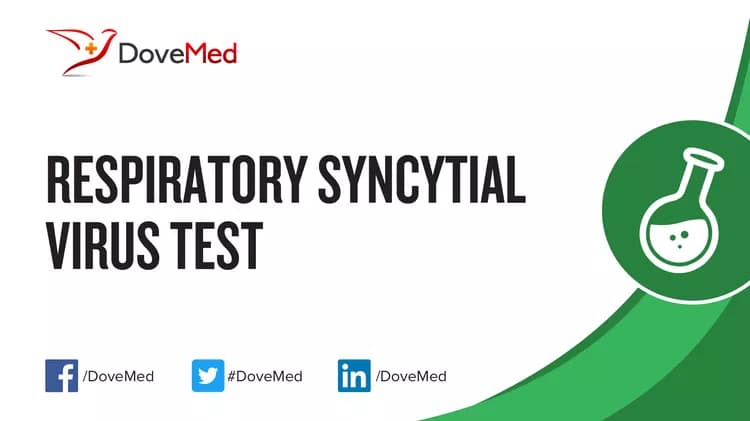What are the other Names for this Test? (Equivalent Terms)
- Paramyxovirus Test
- RSV Test
What is Respiratory Syncytial Virus Test? (Background Information)
- Respiratory syncytial virus (RSV) affects a majority of the children, before they reach the age of one year. By the time they reach the age of 2 years, nearly every child would have experienced an RSV infection
- Though usually mild, in about 2% of the cases, the symptoms of RSV infection may reach levels severe enough to warrant hospitalization
- Individuals, who have a very high risk for severe RSV infection symptoms are those in whom the immune systems are compromised. This may be due to the immunosuppressing effects of old age or an immune disease. It may also be due to an underdeveloped immune system, such as in the case of an infant
- In fact, most hospitalizations caused by RSV occur in infants under 6 months of age. When infection by RSV occurs, as with other infections, the levels of immunoglobulins (Igs) increase in blood
- Immunoglobulins (Igs) are a category of proteins produced by immune cells that aid in bodily defense against outside invaders. They recognize characteristic surface markings (antigens) on a foreign object and bind them away, before any damage is done to the body
- There 5 five main types of immunoglobulins; each type, differing in its function and distribution throughout the body. The 5 types are:
- IgA
- IgG
- IgE
- IgD
- IgM
In particular, the immunoglobulins IgM and IgG increase with an RSV infection.
- Immunoglobulins can reside either on the outside of cells, or freely circulate in blood. When circulating, they are also called antibodies (Abs)
- The Respiratory Syncytial Virus Test is a blood or nasal test that is used to diagnose an infection by the respiratory syncytial virus. It can be performed by testing for the presence of RSV antigen. It can also be done by assessing the IgM and IgG levels, using a technique called immunofluorescence
What are the Clinical Indications for performing the Respiratory Syncytial Virus Test?
Following are the clinical indications for performing a Respiratory Syncytial Virus Test:
- Troubled or painful breathing
- Cough
- Fever, chills
- Excessive sweating
- Muscle aches
How is the Specimen Collected for Respiratory Syncytial Virus Test?
Following is the specimen collection process for Respiratory Syncytial Virus Test:
Sample required: Blood, nasal aspirate
Process:
- Insertion of a needle into an arm vein, to obtain a blood sample
- Administration of sterile saline into the nasal cavity and then drawing the sample, through suction (nasal aspirate)
Preparation required: No special preparation is needed prior to the test.
What is the Significance of the Respiratory Syncytial Virus Test Result?
A positive Respiratory Syncytial Virus Test, specified by an elevated IgM and IgG, or the presence of RSV antigen, may indicate a respiratory syncytial virus infection.
The laboratory test results are NOT to be interpreted as results of a "stand-alone" test. The test results have to be interpreted after correlating with suitable clinical findings and additional supplemental tests/information. Your healthcare providers will explain the meaning of your tests results, based on the overall clinical scenario.
Additional and Relevant Useful Information:
- Respiratory syncytial virus affects individuals on a seasonal basis
- RSV is a virus and hence, antibiotics are not effective against it
- RSV affects 50% of children in the US, during their first year of life
Certain medications that you may be currently taking may influence the outcome of the test. Hence, it is important to inform your healthcare provider, the complete list of medications (including any herbal supplements) you are currently taking. This will help the healthcare provider interpret your test results more accurately and avoid unnecessary chances of a misdiagnosis.
Related Articles
Test Your Knowledge
Asked by users
Related Centers
Related Specialties
Related Physicians
Related Procedures
Related Resources
Join DoveHubs
and connect with fellow professionals


0 Comments
Please log in to post a comment.